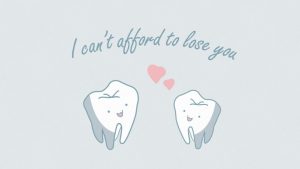
Valentine’s Day is synonymous with that beautiful, red heart- shaped box full of luscious chocolates! In fact, February 14th wouldn’t quite be the same without indulging on some special, sweet treat! We all know the effects these sugary delights have on the waistline but why exactly are they “bad for our teeth” and what can we do about it?
Sugar Attracts Harmful Bacteria!
We’ve always been taught that eating sugar causes cavities but why is this so? The real truth of the matter is, that certain foods we eat attract specific bacteria. When we eat foods high in sugar like candy or even starches like bread or pasta, certain types of bacteria are attracted to the sugars and feed off of them. As these harmful bacteria metabolize the sugars, they produce acids that demineralize the surface of enamel which can lead to dental decay and cavities. These harmful bacteria also produce dental plaque. Plaque is a sticky substance that if left on the teeth creates a breeding ground for more bacteria and keeps harmful acids in contact with the enamel for prolonged periods. Undisturbed plaque can also lead to gum and tissue inflammation resulting in gingivitis or even periodontal disease. This is why it is so critical to brush your teeth a minimum of twice daily but also after consuming foods and drinks high in sugar or carbohydrates.
Saliva is Key!
Reducing your intake of foods that attract these harmful bacteria is an obvious solution but what else can be done? Believe it or not, your saliva plays a key role! Saliva not only helps wash away food particles, but it also helps neutralize harmful acids & aids in the remineralization of enamel. Eating crunchy foods such as nuts or water rich raw fruits and vegetables helps stimulate saliva flow and neutralize pH. Chewing sugarless gum can also aid in encouraging saliva flow.
What Else Can I Do?
- Vegetables high in Vitamin A such as kale, carrots or spinach aid in immune function & bone remodeling.
- Fruits high in Vitamin C also aid in immune function & increased tissue health.
- Whole grains help reduce inflammation, gum disease & tooth loss
- Dairy consumption provides calcium to strengthen teeth & bones & reduces the risk of periodontal disease.
- Protein strengthens teeth & is critical for tissue construction.
- Drink plenty of water!
- Brush with a fluoride toothpaste – fluoride can help prevent decay and even reverse early signs of decay as well as strengthen and aid in the remineralization of enamel.
As you indulge this Valentine’s Day, keep these tips in mind to help maintain healthy teeth, a healthy mouth and a beautiful smile.

